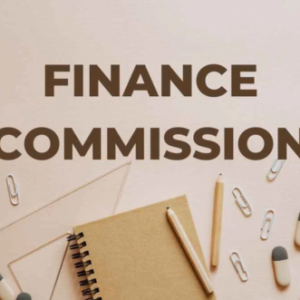Refinancing a loan, whether it’s a mortgage, auto loan, or personal loan, is a common financial strategy to secure better terms, reduce monthly payments, or take advantage of lower interest rates. However, many individuals hesitate, wondering if refinancing will hurt their credit score. Understanding how refinancing affects your credit can help you make informed decisions and avoid unnecessary concerns.
How Refinancing Impacts Your Credit
Refinancing Hurt Your Credit score in several ways. Let’s explore the main factors:
1. Hard Credit Inquiries
When you apply to refinance a loan, lenders conduct a hard inquiry to review your credit report. A hard inquiry can lower your credit score by a few points, typically 5 to 10, but the impact is often temporary. If you shop around for the best rates within a short time (typically 14 to 45 days, depending on the credit scoring model), multiple inquiries are usually treated as one, minimizing the effect on your score.
2. Changes to Credit Age
Refinancing may close your original loan account and open a new one. This can lower the average age of your credit accounts, a factor that contributes to about 15% of your credit score. The impact is usually minor, but it’s something to keep in mind if you’re planning significant financial moves in the near future.
3. Impact on Credit Mix
Your credit mix—types of credit accounts like mortgages, car loans, and credit cards—accounts for 10% of your credit score. Refinancing doesn’t typically alter your credit mix, but it’s essential to manage your accounts responsibly to maintain a healthy score.
4. Payment History
Refinancing itself doesn’t directly affect your payment history, which is the most critical factor in your credit score. However, ensuring timely payments on your refinanced loan is crucial. Missing payments on the new loan could harm your credit score significantly.

Short-Term vs. Long-Term Effects of Refinancing
Short-Term Effects
- Slight Dip in Score: Due to hard inquiries and changes in credit age, you may notice a slight dip in your score immediately after refinancing.
- Adjustment Period: It may take a month or two for the new loan to reflect accurately on your credit report.
Long-Term Effects
- Potential Score Improvement: Refinancing to secure a lower interest rate or more manageable payments can help you stay current on your loan, positively impacting your credit over time.
- Debt Reduction: By using refinancing to consolidate debt or pay off high-interest loans, you may improve your overall financial health, which can boost your credit score.
Best Practices to Minimize Credit Impact
1. Research and Compare Lenders
To limit hard inquiries, research lenders thoroughly before submitting applications. Use prequalification tools, which involve soft inquiries and don’t affect your credit score.
2. Time Your Applications Strategically
If you plan to refinance, submit all applications within a short window. This ensures multiple inquiries are treated as one for scoring purposes.
3. Maintain Timely Payments
Continue making on-time payments on your current loan until the refinancing process is complete. Late payments during this period can harm your credit score.
4. Avoid New Credit Applications
In the months leading up to and after refinancing, avoid applying for other loans or credit cards to keep your credit score stable.
When Refinancing Might Not Be Ideal
Refinancing isn’t always the best choice. Avoid refinancing if:
- You Plan to Apply for Major Credit Soon: A temporary dip in your score could impact applications for a mortgage or other significant loans.
- The Savings Are Minimal: If the interest rate reduction doesn’t outweigh the refinancing costs, it may not be worth it.
- You Have a Short Loan Term Left: Refinancing toward the end of a loan term may result in more costs than savings.
Conclusion
Refinancing Hurt Your Credit score in the short term, but the effects are typically minor and temporary. With responsible financial management and by following best practices, refinancing can ultimately improve your credit and financial well-being. Whether you’re refinancing to lower your interest rate, consolidate debt, or adjust loan terms, understanding the credit implications will help you make confident, informed decisions.
By carefully evaluating your options and maintaining good credit habits, you can navigate the refinancing process with minimal impact on your credit and maximum benefit to your financial health.









